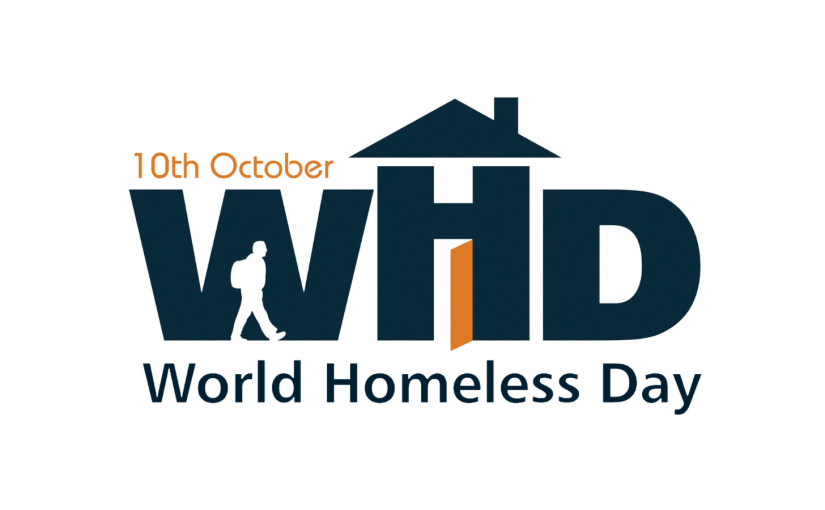On 10 October, we join communities around the world in observing World Homeless Day. The day is an opportunity for us to reflect on homelessness in Jersey. Who does it affect? What are its causes? What is its impact? And what can we do to end it?
I believe that to answer these questions properly, we first need to understand what the term homelessness means and how it applies to our community.
A year ago, I published a formal ‘definition of homelessness in Jersey’ in partnership with the Island’s homeless accommodation providers and services. The definition is based on the European Typology of Homelessness and Housing Exclusion (ETHOS) and encompasses four categories of homelessness:
- Rooflessness – without a shelter of any kind; described by many as “sleeping rough.”
- Houselessness – with a place to sleep but temporarily in institutions or shelters.
- Living in insecure housing – threatened with exclusion because of insecure tenancies, eviction, or domestic violence.
- Living in inadequate housing – in caravans or illegal campsites, in unfit housing or in extreme over-crowding.
In reading this blog post, I encourage you to take a look at the definition and reflect on the diversity of housing situations that are categorised as homelessness, and the wide-range of people that it can affect.
For me, the definition illustrates the complexity of homelessness. People become homeless for many different reasons; they don’t all face the same challenges; and some forms of homelessness are more visible than others.
Rough sleeping – or rooflessness – is the most visible form of homelessness, but there are other, hidden forms that cannot be overlooked. In Jersey, “sofa-surfing” is particularly concerning. This is where a person stays with friends or family on a temporary and insecure basis because they have nowhere else to go. The people it affects are likely to be vulnerable, and they might not identify themselves as homeless. This means that they fall outside the formal system of housing support and are not captured in any data, making their situations all the more hidden.
Whichever way we define it, homelessness is an isolating and devastating situation. No one in Jersey should have to experience homelessness or be placed at risk of becoming homeless.
That is the reason why, on World Homeless Day, I am reiterating my full commitment to the Jersey Homelessness Strategy and delivering the actions set out in the Ministerial response.
Since publication of the strategy, we have already taken important and unprecedented actions to address homelessness:
- Our Housing Advice Service is up and running with a dedicated team providing support and guidance to Islanders on a wide-range of housing issues. We are continuing to strengthen the role and functions of the service with additional funding proposed in the Government Plan 2024-2027.
- Access to social housing is being gradually widened as part of the roadmap for improving access to social housing in Jersey, including gradually reducing the minimum age of eligibility for people without children from 40 (down) to 25 and increasing the maximum income thresholds.
- Andium Homes is on track to deliver 3,000 new homes by 2030, which will help to ensure that more Islanders are able to access affordable, good quality and secure homes.
- In the private rented sector, the proposed residential tenancies reforms will provide a much-needed modernisation of security of tenure arrangements, ensuring that landlords and tenants have greater certainty about their rights and responsibilities, and tenants are protected against unfair eviction.
- As part of the residential tenancies reforms, consideration is being given to new regulation-making powers around homelessness, including a potential statutory definition and underpinning for homeless services.
I feel positive about the progress we are making, but there is much more work to do if we are to achieve our vision of ending homelessness in Jersey.
From my discussions with individuals with lived experiences of homelessness, and in meeting the Island’s homeless accommodation providers and services, it is clear to me that homelessness is not simply a housing issue. The experience of homelessness is associated with complex life experiences and a variety of different needs.
Family breakdown, domestic violence, loss of employment, financial problems, substance misuse, and institutional experiences such as leaving prison or care can put individuals under significant strain and at risk of becoming homeless. These problems can also result from, and be exacerbated by, homelessness, creating a vicious cycle of disadvantage and exclusion.
My commitment on World Homeless Day is to address the interconnected and multifaceted nature of homelessness. This means bringing relevant government departments and community partners together, moving beyond reactive responses and doing more at an earlier stage to prevent someone reaching a crisis point.
With the right policies, data and evidence, homes and support, and partnerships in place, I am confident that we can move beyond addressing the symptoms of homelessness towards solving its underlying causes – ending homelessness for good and enabling all Islanders to thrive.
Early action can prevent homelessness. If you are at risk of homelessness or know someone who is, you should seek immediate support from the Housing Advice Service or one of the many charities in Jersey who can help: Information for anyone facing homelessness in Jersey (gov.je).
Housing Advice Service
T. 01534 444444
 blog.gov.je
blog.gov.je